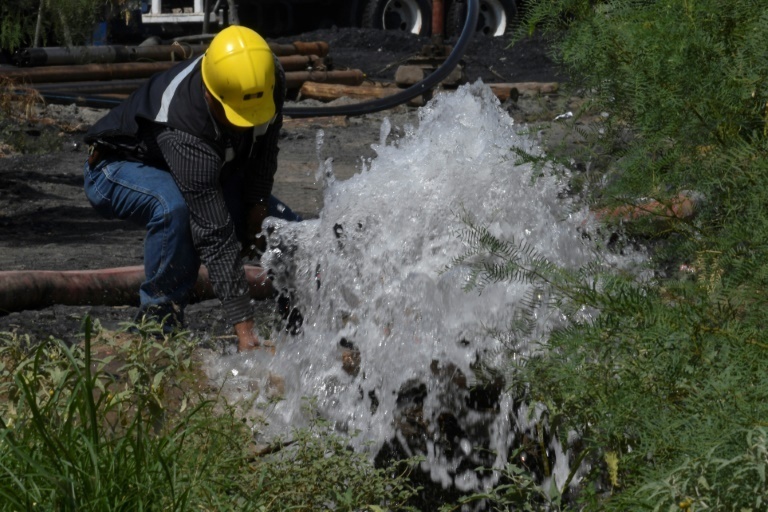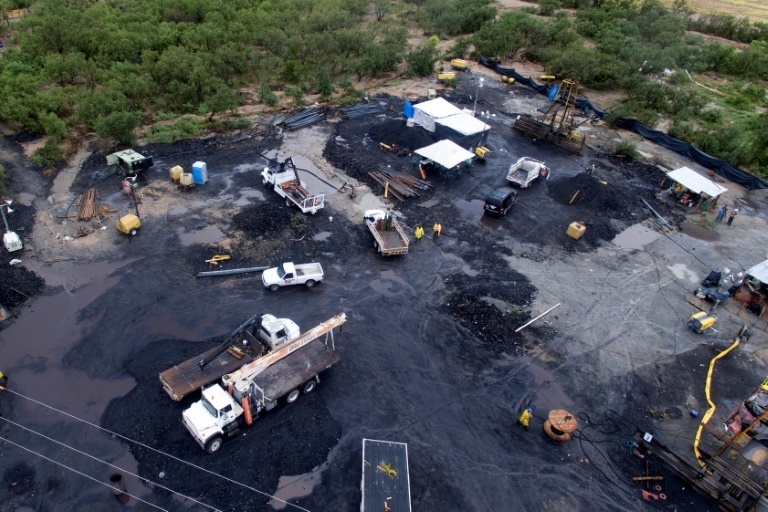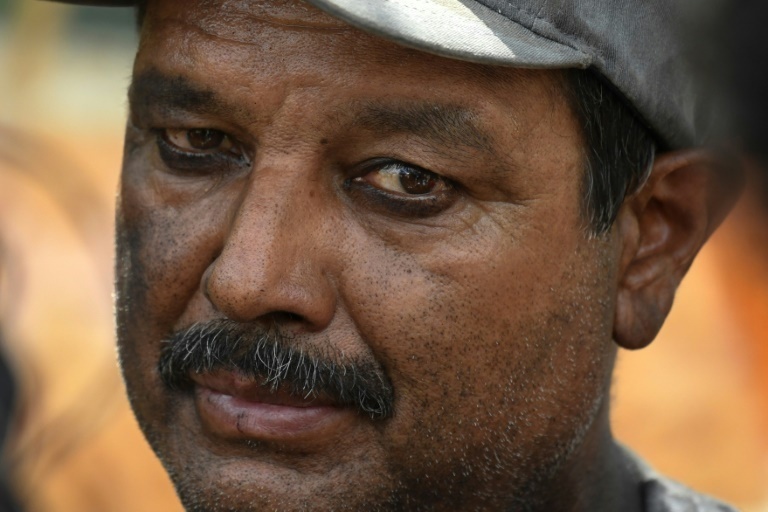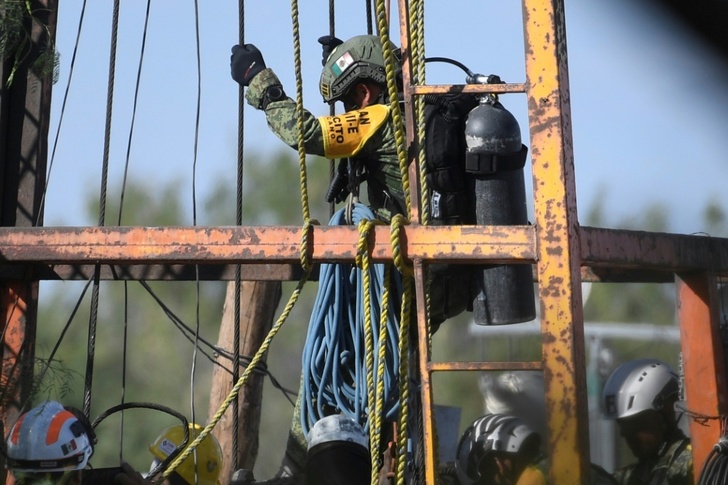Water is the worst enemy of Mexican miner David Huerta, who once survived an accident similar to the one that has trapped 10 workers in a flooded tunnel for more than two weeks.
On the day of his own brush with death, Huerta saw the beam from a colleague's head lamp coming quickly towards him and the cry of "water, water!"
He ran for his life, scratching his body against the rough mine walls and hitting his head against the wooden pilings.
"Water's our worst enemy," said Huerta, 35, who spent nearly 13 years working in mines in Sabinas in the northern state of Coahuila.
His brother-in-law, Sergio Cruz, is one of those missing in the roughly 60-meter (200 feet) deep El Pinabete mine, with no sign of life since it flooded on August 3.

Water is the biggest challenge facing rescuers, who have been pumping it out around the clock as part of an operation involving hundreds of people, including soldiers.
Another obstacle is that access to the main tunnel is through narrow vertical shafts that authorities say have been blocked by debris.
A sharp increase in the water level over the weekend dealt a major setback to the rescue effort.
The government now hopes to seal the leak by injecting concrete.
- Grueling work -
The coal extracted in precarious conditions from small, crudely constructed mines with lax safety standards like El Pinabete help to keep Mexico's power plants running.
There are some 67 small and mid-sized coal producers in Sabinas, according to official figures.
Between September 2020 and December 2021, the area yielded two million tons of coal for power plants operated by the state-owned Federal Electricity Commission (CFE) in Coahuila.
The fossil fuel has come at a high human cost for miners, who earn the equivalent of $150-200 a week.

Even today, miners work "almost naked" underground in temperatures of around 35 degrees Celsius (95 degrees Fahrenheit) without adequate ventilation, Huerta said.
They spend up to six hours a day -- their bodies cannot cope with more -- working bent over or kneeling in cramped conditions without proper safety equipment such as a mask.
"Their only equipment is a helmet and lamp," said Cristina Auerbach, director of Familia Pasta de Conchos.
- 'Owner doesn't care' -
Employers' lack of knowledge about the geological conditions of the mines is another major risk factor, according to workers and experts.
"They don't hire engineers. They don't make calculations. They aren't measuring production. They just take it out and sell it," said Diego Martinez, a researcher at the Autonomous University of Coahuila.
One reason for the decision to keep mining at El Pinabete could have been its particularly thick coal seam, Huerta said.

The mine's registered concession holder has been silent about the accident and its ownership is opaque.
The government has halted activities at 27 mines in Coahuila for safety failures.
But political influence has prevented stricter controls that could have saved lives, according to Auerbach.
"The CFE exercises political control over the region because it controls all these politicians by giving them coal contracts," she said.
President Andres Manuel Lopez Obrador, who has vowed to find the missing miners, has spoken of local political bosses who prevent miners unionizing.
It is also rare for miners to be enrolled in social security programs.
"Most of the mines are clandestine," Huerta said.
While he no longer risks his life underground to earn a living, others feel they have no other choice.
"We've always worked in this and it's very difficult to give it up," said father-of-three Luis Armando Ontiveros, 48.
jla-yug-dr/mdl
© Agence France-Presse
Your content is great. However, if any of the content contained herein violates any rights of yours, including those of copyright, please contact us immediately by e-mail at media[@]kissrpr.com.
Source: Story.KISSPR.com

